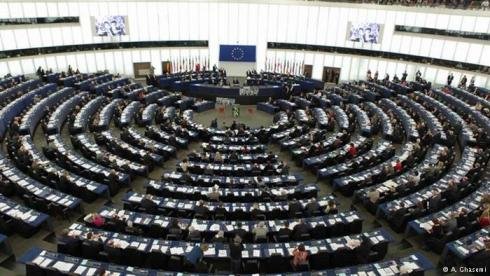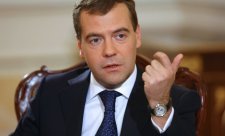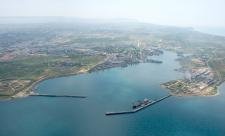 Community. It is getting harder for the European Union to reach a consensus in this matter. The Russian Federation continues to push of weak links driving a wedge into the European unity.
Community. It is getting harder for the European Union to reach a consensus in this matter. The Russian Federation continues to push of weak links driving a wedge into the European unity.
The European Council adopted a political decision to extend sectoral economic sanctions against Russia at least until the end of the year. Such a decision has been made despite the growing dissatisfaction from a whole range of member states of the EU. Leaders of such countries as Italy, Greece, Cyprus, Spain, Austria, Hungary and Slovakia take a dim view of prolongation and reinforcement of the sanctions.
The head of the foreign service of Spain José Manuel García-Margallo opposed the change of sanctions regarding Russia. “We can see that situation is stable in Ukraine at the present. This is why, in my opinion, there is no point to reinforce or loosen sanctions,” he stated.
Greece also expresses dissatisfaction because of the current situation. The minister of foreign affairs of Greece Nikos Kotzias is concerned that the retaliatory sanctions of the Russian Federation including restrictions on import of agricultural products for the EU countries come at a high cost for his country. He appealed to the countries of the European Union to conduct negotiations on the matter of reparation of losses caused by the Russian sanctions.
The head of the ministry of foreign affairs of Poland Grzegorz Schetyna announced that at the present there are no reasons to reinforce sanctions against Russia. “Nothing happened in the east of Ukraine to discuss extending sanctions,” he said, having noted that Poland remains an adherent of sustaining of sanctions.
In return, the Russian Federation actively uses weaknesses of Europe. Just recently, Vladimir Putin met the leaders of Hungary and Cyprus offering new advantageous agreements to his colleagues. Now the Russian Federation gives preferences to the very same Hungary, Cyprus and Greece, getting ready to cancel the economic sanctions for these countries.
Italy that is one of the main trade partners of Russia in Europe is also dissatisfied by the damage, caused in result of the sanctions. Official Rome was one of the first in Europe, who opposed tightening of the anti-Russian sanctions. During his visit to Moscow, the prime minister of Italy Matteo Renzi expressed concern by the current economic situation and announced that sanctions create “significant problems for the both sides”.
There are those, who call upon vigilance and tightening of sanctions. Such states as Latvia, Estonia and Lithuania are not in a hurry ease, being afraid of augmentation of Russian troops on next to their borders. Representatives of the Baltic States insist on consideration of reinforcement of sanctions against Russia.
Evidences of tiredness from the conflict in the east of Ukraine become more and more discernible in the European Union. Many European countries desperately hope to freeze the conflict in Donbass and return to the restoration of the economical relationships with Russia. Europe insists on adherence of the Minsk agreements by means of the growing majority of voices, while trying to change the fragile ceasefire into something reliable and stable. Something that will enable European leaders to sigh with relief and remove such a tiring burden of sanctions.
Andrey Trutenko, “Pod Pricelom”












